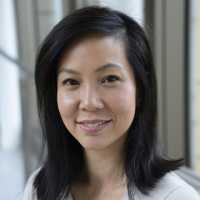10 May Five New Genes Driving Breast Cancer Identified
MedicalResearch.com Interview with:

Dr. Serena Nik Zainal
Serena Nik-Zainal MD PhD
Wellcome Beit Fellow & Honorary Consultant in Clinical Genetics
CDF Group Leader
Wellcome Trust Sanger Institute
United Kingdom
MedicalResearch.com: What is the background for this study? What are the main findings?
Dr. Nik-Zainal: We have used the massive improvement in speed of “sequencing” (reading the human genetic material) in order to obtain comprehensive whole genome maps of 560 human breast cancer patients. This is the largest whole genome sequencing study of a single cancer type in the world. We wanted to forensically search these cancers, find all the important genes that drive breast cancer, find all the important mutation patterns that tell us something about why breast cells turn into cancer cells and then to pull it altogether for each patient. We wanted to be able to “profile” each cancer patient, to see if we could further our understanding of personal cancer genomes.
In all, we had 556 female and four male patients, and they were sought from all over the world – USA, Europe and Asia.
MedicalResearch.com: What should readers take away from your report?
Dr. Nik-Zainal: First, we have uncovered five new genes that we think drive breast cells to turn into breast cancer cells.
Second, we have been able to identify thirteen new mutation patterns, or mutational signatures. These are the imprints of the biological processes that are going awry in cells as they into cancer, a different but useful set of clues about the causes of cancer
Third, we can pull all these data together – the genes and the mutation patterns in each patient, determine the personalized genomic profile of each cancer patient and through comparing and contrasting these patients, learn a lot about individual patient cancers.
It is the most comprehensive study of its kind.
MedicalResearch.com: What recommendations do you have for future research as a result of this study?
Dr. Nik-Zainal: The next step would be to use the comprehensively collected genomic data, all of it, in clinical trials. We need to do the clinical trials investigating sensitivities to different drugs while taking all the data that one can glean into account, because we learn so much more when all the data is to hand. This is the obvious way forward in order to achieve truly stratified personalized medicine.
MedicalResearch.com: Is there anything else you would like to add?
Dr. Nik-Zainal: I envisage a future where we would all get our bits of tumour/ biopsied tissue sequenced, at the point of suspicion of cancer.
This should help us know all the important genes and all the important signatures that are present, give us critical clinical interpretations then could help guide treatment options.
I also envisage that the data collected will be held, anonymously, if necessary, in a repository that will continuously be topped up with more information about each patient.
As we gather more and more data, we will learn more about each cancer and improve on our methods to treat everyone more efficiently and more effectively.
This is well within our reach. It is not impossible, nor is it to be feared and could make all the difference to maximizing learning potential.
It would not have been possible without the altruistic and adventurous support of the patients whom gave their samples and their permission for us to conduct this study.
MedicalResearch.com: Thank you for your contribution to the MedicalResearch.com community.
Citation:
Serena Nik-Zainal, Helen Davies, Johan Staaf, Manasa Ramakrishna, Dominik Glodzik, Xueqing Zou, Inigo Martincorena, Ludmil B. Alexandrov, Sancha Martin, David C. Wedge, Peter Van Loo, Young Seok Ju, Marcel Smid, Arie B. Brinkman, Sandro Morganella, Miriam R. Aure, Ole Christian Lingjærde, Anita Langerød, Markus Ringnér, Sung-Min Ahn, Sandrine Boyault, Jane E. Brock, Annegien Broeks, Adam Butler, Christine Desmedt, Luc Dirix, Serge Dronov, Aquila Fatima, John A. Foekens, Moritz Gerstung, Gerrit K. J. Hooijer, Se Jin Jang, David R. Jones, Hyung-Yong Kim, Tari A. King, Savitri Krishnamurthy, Hee Jin Lee, Jeong-Yeon Lee, Yilong Li, Stuart McLaren, Andrew Menzies, Ville Mustonen, Sarah O’Meara, Iris Pauporté, Xavier Pivot, Colin A. Purdie, Keiran Raine, Kamna Ramakrishnan, F. Germán Rodríguez-González, Gilles Romieu, Anieta M. Sieuwerts, Peter T. Simpson, Rebecca Shepherd, Lucy Stebbings, Olafur A. Stefansson, Jon Teague, Stefania Tommasi, Isabelle Treilleux, Gert G. Van den Eynden, Peter Vermeulen, Anne Vincent-Salomon, Lucy Yates, Carlos Caldas, Laura van’t Veer, Andrew Tutt, Stian Knappskog, Benita Kiat Tee Tan, Jos Jonkers, Åke Borg, Naoto T. Ueno, Christos Sotiriou, Alain Viari, P. Andrew Futreal, Peter J. Campbell, Paul N. Span, Steven Van Laere, Sunil R. Lakhani, Jorunn E. Eyfjord, Alastair M. Thompson, Ewan Birney, Hendrik G. Stunnenberg, Marc J. van de Vijver, John W. M. Martens, Anne-Lise Børresen-Dale, Andrea L. Richardson, Gu Kong, Gilles Thomas, Michael R. Stratton
Landscape of somatic mutations in 560 breast cancer whole-genome sequences
Nature, 2016; DOI:10.1038/nature17676
Note: Content is Not intended as medical advice. Please consult your health care provider regarding your specific medical condition and questions.
More Medical Research Interviews on MedicalResearch.com
[wysija_form id=”5″]
Last Updated on May 10, 2016 by Marie Benz MD FAAD
